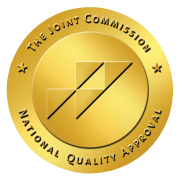Do I Have OCD?
It’s more than just washing your hands three times a day. It’s more than wanting to make sure your shirts are neatly lined up in your closet. It’s more than mantras and prayers to get you through the day.
But some of these things might be signs or symptoms of what is commonly called OCD (obsessive-compulsive disorder).
Obsessive-compulsive disorder (OCD) is a mental health condition characterized by recurrent, unwanted thoughts (obsessions) and repetitive behaviors (compulsions) that a person feels driven to perform.
And yeah, everyone gets a little obsessive and compulsive from time to time. But the difference is in the rigidity. The difference is in how much these actions interfere with your everyday life and ability to function. That is when it crosses and may be a symptom of an anxiety disorder.
If you are wondering, “Do I have OCD?” Here are some definitions, symptoms, and an OCD quiz to help you determine if you should get more help with a diagnosis.
Do I have OCD: Obsessions
Let’s start with the “O” of OCD. It stands for obsessive. Obsessions are persistent, unwanted thoughts, ideas, or images that are intrusive and can mess with your day through distress or anxiety.
These thoughts are often irrational or exaggerated, and the person with OCD may try to ignore or suppress them.
Common Obsessions
- Fear of contamination: Obsessive thoughts about germs, dirt, or other contaminants, and a need to clean or avoid them. This might cause excessive hand-washing, avoiding touching certain objects or surfaces, and avoiding public places.
- Symmetry and order: A need for things to be arranged in a particular way or for symmetry to be maintained. This might mean arranging objects in a precise way, becoming stressed out if objects are not symmetrical or ordered in a specific way, and spending significant effort organizing their environment.
- Unwanted sexual or aggressive thoughts: Obsessive thoughts about sexual acts or violence that the person finds disturbing.
- Relationship-related obsessions: Obsessive thoughts about the fidelity or loyalty of a partner, or doubts about one’s own feelings towards a partner.
- Excessive concern with religious or moral issues: Obsessive thoughts about sin, blasphemy, or the need to follow certain religious practices.
- Superstitious beliefs: Obsessive thoughts that certain actions or events will bring about good or bad luck.
Remember, these are just a few examples. Obsessions can vary widely from person to person and will likely be specific to each individual. A
Do I have OCD: Compulsions
The “C” in OCD represents compulsive. Compulsions are repetitive behaviors or mental acts that a person with obsessive-compulsive disorder (OCD) feels driven to perform in response to an obsession. And by “feels driven” we mean this is a very rigid internal need that must be met.
Some common types of compulsions include:
- Hand washing: Excessive hand washing, even to the point that hands become raw, in an attempt to reduce anxiety about contamination. This
- Checking: Repeatedly checking things (e.g., locks, appliances, or the safety of loved ones).
- Counting: Repeatedly counting objects or performing certain actions a specific number of times.
- Arranging or organizing: Needing to arrange objects in a specific way or to have them organized in a particular order.
- Seeking reassurance: Seeking constant reassurance from others about one’s own thoughts or actions.
- Mental compulsions: Mental acts such as silently repeating a phrase, mantra, or prayer.
OCD can be a debilitating condition that can interfere with a person’s daily life and relationships. However, with appropriate treatment, most people with OCD are able to manage their symptoms and lead fulfilling lives.
When Has It Become OCD?
It is normal to have occasional obsessive thoughts or to engage in certain routines and habits. However, if these thoughts and behaviors become frequent, intense, and interfere with your daily life, OCD might be a possibility. Let’s break that down a little further.
Amount of time
You spend a significant amount of time on your thoughts and behaviors. If you find that you are spending hours each day on obsessive thoughts or rituals, this may be a sign of OCD.
Causing distress
If your obsessive thoughts or compulsive behaviors are causing you significant distress or are interfering with your ability to function in daily life, you may have OCD.
Tried to stop
You have tried to stop or reduce your thoughts and behaviors but have been unable to do so.
Do I Have OCD Quiz
Here is a simple quiz that may help you assess whether you have symptoms of obsessive-compulsive disorder (OCD):
- Do you have recurring thoughts or urges that you find distressing or hard to ignore?
- Do you engage in repetitive behaviors or rituals in order to reduce anxiety or prevent something bad from happening?
- Do these thoughts and behaviors take up a significant amount of time and interfere with your daily life?
- Have you tried to stop or reduce these thoughts and behaviors, but found it difficult to do so?
- Do these thoughts and behaviors cause you significant distress or impairment in your daily life?
- Have you had these symptoms for at least six months?
If you answered “yes” to most or all of these questions, you may have symptoms of OCD.
Of course, this is not a medical diagnosis. The best thing to do is call a mental health professional.
Treating OCD in Newport Beach California
A partial hospitalization mental health program can be an effective treatment option for people with obsessive-compulsive disorder (OCD). This type of program typically involves intensive treatment for several hours a day, several days a week, in a structured setting. The program may include a variety of therapies, such as cognitive-behavioral therapy (CBT), exposure and response prevention (ERP), and medication management.
One of the main benefits of a partial hospitalization program for OCD is that it provides a high level of support and structure while still allowing the person to live at home. This can be especially helpful for people who need more support than outpatient therapy can provide, but who are not in need of inpatient treatment.
Lido Wellness Center PHP in Newport Beach
In our partial hospitalization program in Newport Beach California, the person with OCD will work with a team of mental health professionals to develop a treatment plan that is tailored to their specific needs.
They will learn new coping skills and strategies to manage their OCD symptoms. By participating in a partial hospitalization program, people with OCD can make significant progress in their recovery and improve their quality of life.
Call our mental health specialists today to discovery your options in our specialized program for OCD.




